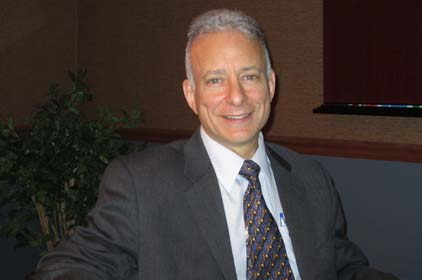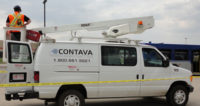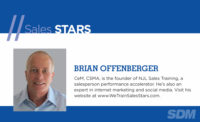
|
| Alan Kruglak, senior vice president, Genesis Security Systems |
In 2002, a group of partners started a security integration company in the greater Washington DC area. They set up shop in a 6,000-square-foot space and had no employees. More than a decade later, Genesis Security Systems now employs more than 40 people, has moved into a 13,000-square-foot space and had 2012 revenues of $18 million. And the company is completely debt-free.
If this story sounds familiar, there’s a good reason for that. It echoes the story of the partners’ previous security company, GIC, which they sold to Sensormatic, which later sold it to Siemens. So this isn’t the first time at the rodeo for partners Chris Foster, Ed Simon, and brothers Alan and Glen Kruglak.
What’s the secret behind the company’s success? According to Alan Kruglak, the company’s senior vice president, it’s a two-pronged approach, the first of which is putting customers first.
“One of the things that makes us different is an obsessive focus on the customer,” he says. “Our employees know that I don’t sign their paychecks; customers sign their paychecks.”
The second prong is an increased focus on standardization in product lines.
“Unless our technicians can properly deliver systems, it’s tough. The only way to do it right is to limit your product lines. We have one access control vendor, and that’s Software House,” Kruglak says. “Video is the only area where we haven’t been able to standardize. We’ve had to support six VMS platforms.”
Overlapping both areas is service, which has been another major focus for the Germantown, Md.-based company.
“We have an obsessive focus on service contracts, which make up about a third of our revenue,” he says. “They make us profitable and ensure our customers’ satisfaction.”
Genesis employs 32 full-time installers, and 28 of them are factory certified, meaning they “know the product backward and forward.” The company also keeps a large inventory on hand, which combined with the installers’ knowledge and experience, allows the company to install and repair systems faster, Kruglak says.
“We can get a better unit cost because we maintain a local inventory of $500,000 at wholesale prices. So at any given time, there’s $12,000 to $15,000 worth of products on each truck. We don’t have to call factory support,” he says. “We spend $100,000 to $150,000 a year on training. It’s the only way to make employees smarter so they can do jobs quicker … Most companies’ installers can do two to 2.5 installations a day on average. Our guys are doing four to six.”
When asked to what he would attribute the company’s somewhat rapid growth (Genesis is projecting $23 million in revenues in 2013), Kruglak insists it’s not the management team or the technology. No, he says, the real secret of Genesis’ success, in addition to its customers, is its employees.
“It’s the guys who put their heart and soul into everything and make it work for our customers. We put them on top of a pedestal; they’re the most important people in the company,” he believes.
Because Genesis values its employees so highly, Kruglak says, the company goes out of its way to treat them well and reward them for their hard work.
“The people who work here work hard, and they’re compensated and they get recognition,” he says. “Our non-sales staff gets a bonus two times a year. So rather than the traditional Christmas bonus, they get one at the end of June and another at the end of the year. Our turnover rate is practically nonexistent.”
Some might look at the company’s rapid rise over the last 10-plus years as growing too fast, too quickly. But that’s not the case, Kruglak says. The company has built relationships with strategic partners to whom Genesis will subcontract any labor overflows. As for bringing additional employees under the Genesis umbrella, that’s not something Kruglak and his partners take lightly.
“I want to make sure that if I hire someone, I can give them full-time employment,” he says.
In terms of customer acquisition, the company isn’t interested in getting into a bidding war over projects, but prefers to find opportunities where it can create a relationship and partnership with customers, Kruglak says.
“It’s like if you’re buying toothpaste. You can go down the road to Rite Aid and get it for 5 cents cheaper, but that cost doesn’t speak to value,” he says. “It’s hard for customers to recognize the value of $500,000 in inventory on hand, but from their perspective, things get fixed a lot quicker. If they need something right away, there’s a good chance we have it on hand.”
That’s not to say problems don’t exist.
“We’re not afraid of problems, and we don’t sweep them under the rug; we address them head-on,” Kruglak says. “When we make a mistake, we own up to it and we fix it.”
The bottom line, Kruglak says, is that the Genesis success story is at its core a story about people, both employees and customers.
“When it comes to our employees, we have a responsibility to help them. They’re like family. We look at them as people, not budget numbers,” he says. “And we have great customers.”






